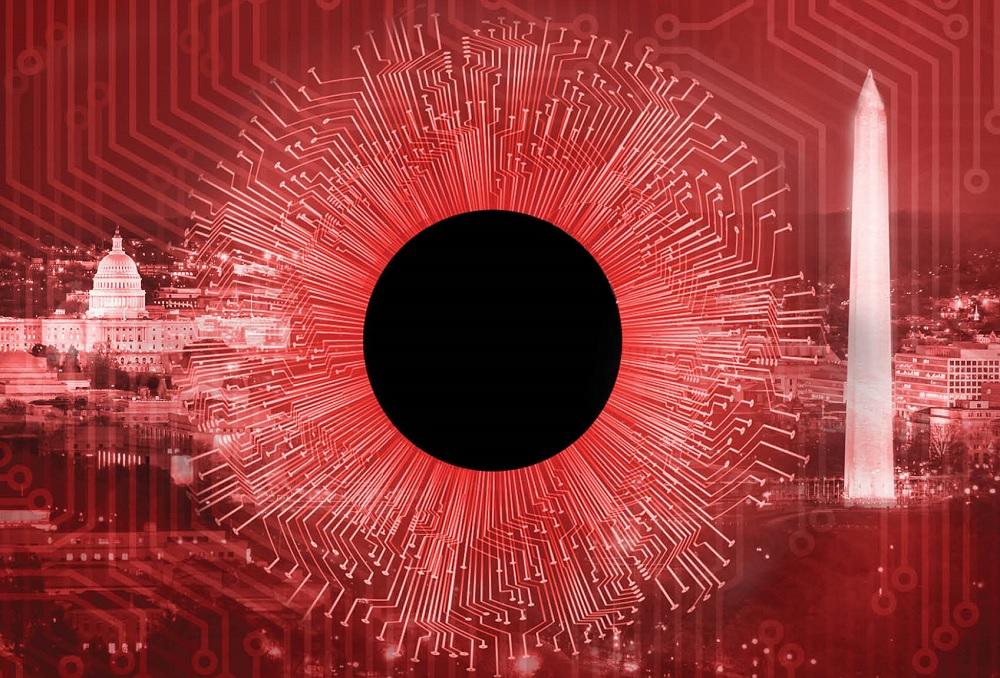From the bookshelf: ‘Burn-in: a novel of the real robotic revolution’
Posted By John Watts on June 15, 2020 @ 11:53

I read Burn-in [1]—the follow-up novel to Ghost Fleet by Peter W. Singer and August Cole—using an artificial-intelligence-driven app that converted PDF text to speech, which I listened to through wireless ear pods. Occasionally I’d pause it using my smart watch—often to help my kindergartner keep up with her distanced education via Zoom, YouTube clips and a variety of Silicon Valley–created online education start-ups.
In many ways this was completely unremarkable. A decade ago, however, it would have been hard to imagine outside of a James Bond film. Doing it in the suburbs of Washington DC—amid a crisis that everyone knew could happen, but somehow never planned for the time when it would happen—it felt like I was living out an approximation of a chapter in the book itself. And that’s the entire point.
Science fiction has always been a powerful tool for examining our society. It invites us to challenge our assumptions and reconsider our biases by exaggerating and abstracting elements of our society and culture or by creating alternative and hypothetical futures. But these scenes often take place in elaborate and fantastical settings—far in the future, on other planets or in extreme caricatures of society. When the setting is the near future, it’s often in films or video games that give priority to entertainment or narrative over realistic explorations of the more mundane realities of living with emerging technologies.
What characterises the fiction that Singer and Cole produce is that it starts with the technology, and then explores the many ways it affects our lives as human beings. The style is a direct manifestation of the nature of the authors themselves.
Both are true believers in and advocates for the value of science fiction in exploring our future society. They are leading experts on emerging technologies and their implications and have been fixtures of the national security community in the United States for decades. Like anyone else who’s active in exploring technology adoption in the national security realm, I’ve known and worked with both authors for going on a decade.
And that’s precisely why the story has a familiarity and authenticity that anyone in the field will immediately recognise. It comes from decades of not only studying emergent issues that others are barely aware of yet, but also interacting with military and law enforcement personnel, decision-makers and those involved at every level of government and society, and considering how technology will impact them.
This authentic feel is captured in the description of locations around DC, both public—such as Union Station—and those accessible only to people who are embedded in the community—such as the FBI’s Hostage Rescue Team training facility at Quantico. It’s also reflected in the realities of DC life—such as the nightmare that is peak-hour traffic—through to the language, concerns and behaviours of those who live and work here.
The story focuses on a former US marine turned FBI agent who is tracking down a terrorist threat in a near-future Washington awash with robotic and AI platforms. While Ghost Fleet was about the risk of conflict between the US and its great-power competitors, and how a future war might be fought with tomorrow’s weapons, Burn-in looks at the human impacts of robotics and AI and the ripple effects on different facets of society—from how the technology affects white-collar jobs to how family members engage with one another in the home.
If you’re familiar with Ghost Fleet—and given that its on most recommended reading lists for military officers, its likely you are—you’ll know that the book is written in a way that seeks to contextualise technologies that have operational prototypes and are nearing widespread employment. In this way, it bridges pure fiction and a dry report on emerging tech. This approach can be slightly clunky and may not be attractive to all audiences. When you know what you’re looking for, it can stand out—like product placements in movies.
Make no mistake: trying to write good science fiction is hard. If you haven’t tried it, then do so (seriously—the more who engage in these thought experiments the better). Trying to build an authentic world that’s a realistic reflection of how emerging tech will shape our lives is incredibly difficult. Yet this is the whole purpose. As Frederick Pohl said, ‘A good science fiction story should be able to predict not the automobile but the traffic jam.’ Singer and Cole have succeeded admirably in exploring the traffic jam that AI will cause in our lives in the near future.
So, if you are like me and appreciate a thoughtful exploration of the manifestly complex implications of imminent tech adoption in the national security arena, embedded in a compelling narrative, this book will be well worth your time.
Article printed from The Strategist: https://aspistrategist.ru
URL to article: /from-the-bookshelf-burn-in-a-novel-of-the-real-robotic-revolution/
URLs in this post:
[1] Burn-in: https://www.hmhbooks.com/shop/books/BurnIn/9781328637239
Click here to print.